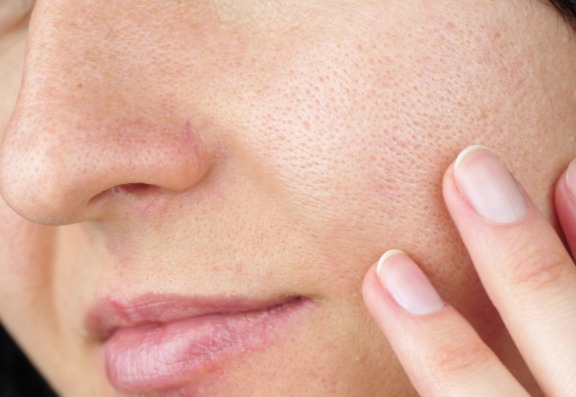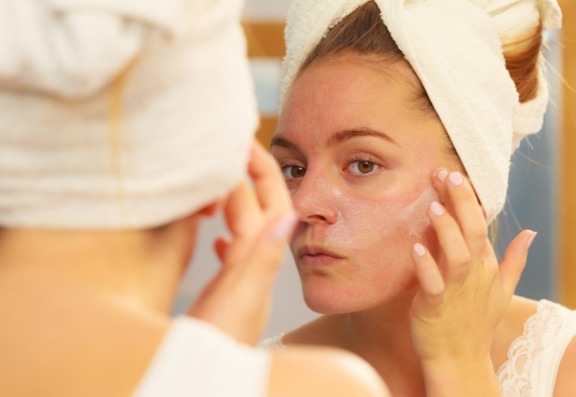What Is My Skin Type? And, How Do I Look After It?
No matter your skin type, everyone can benefit from a regular skincare routine, including daily cleansing and moisturising.
But, since everyone’s skin is different with different needs, this simple routine alone is often not enough to target skin issues or adequately care for your skin type.
Understanding what type of skin you have is the first step to finding the routine, ingredients and products that meet your skin’s needs to ensure it’s always looking and feeling its best.
Generally, people find their skin can fit into one of the following skin categories: Oily, dry, combination, sensitive or normal. Sometimes our skin doesn’t fall into a single category, and it may straddle a few different skin types.
It could also change depending on the season or changes to your lifestyle, and is likely to change as you age - just think how skin differs as a teenager and then once you step into adulthood.

So, How Do You Figure Out Your Skin Type?
It’s actually very easy!
All you need is a simple cleanser and 30 minutes of your time. First, cleanse your face as you normally would, pat it dry and leave it alone. Do not apply any products after cleansing - this includes toners and serums!
After 30 minutes, take a look at your skin.
Of course, in addition to the above, other skin types may require more intervention, such as those that are acne-prone, dealing with hyperpigmentation, eczema or rosacea. If you suspect you are dealing with any of these issues, please speak to your doctor or medical professional to get the treatment you need.
Now that you’ve determined your skin type, how do you make sure you look after it? Most people’s skincare goal is to achieve skin that looks hydrated, healthy and glowy. Depending on the skin type you have to begin with will determine what products are best for you to use to achieve this skincare goal.
Here are our top tips on what you can do at home to get healthy, glowing skin:
Oily Skin
The temptation with oily skin is to use products that get rid of the excess oil. However, stripping your skin of all its oil and moisture will only make it more oily.
Why? Your face needs a nice balance of oil to keep it hydrated, but if you get rid of all the oil, your skin will panic and go into overdrive, producing more oil and creating a vicious cycle.
Opt for clay masks that don’t dry out your skin, and limit your use of harsh drying products. Salicylic acid is a great ingredient to look out for in cleansers and toners as it helps deep clean excess oil out of pores and reduces oil production moving forward. Though you might be tempted, do not skip out on the moisturiser! Choose a light, oil-free option to keep your skin feeling hydrated but not greasy.

Dry Skin
Our number one tip for people with dry skin is to invest in a humidifier - especially if you suffer from dry skin in the winter.
Dry air caused by central heating can evaporate the natural moisture in your skin leaving it feeling dry, itchy, or flaky which can worsen over time. Adding moisture to the air with a humidifier can counteract these problems.
People with dry skin will also benefit by avoiding excessive hot showers and being wary of over-exfoliating.
Hyaluronic acid is a key ingredient for dry skin as it works by absorbing moisture like a sponge so make sure to apply this first in a serum followed by a non-comedogenic (won’t clog your pores) moisturiser to lock in that hydration. If your skin is extremely dry, sore and flaky despite using a suitable skincare routine, you may have eczema or dermatitis. In this case, book an appointment with your doctor or dermatologist to get proper treatment.
Combination
The combination of an oily T-zone across the forehead, nose and chin, and dryer cheeks can make it tricky to find products that will adequately treat both areas to bring your face into balance. If you use products meant for oily skin, you run the risk of drying out other areas of your face, but if you load up on the moisture, you could exacerbate oiliness.
One way around this is to alternate when you use your products to ensure you’re not overdoing it with each product. You can also treat your face as two halves by using products best for oily skin only in your T-zone and products best for dry skin on your cheeks. If you find it’s only one specific area of your face that needs special attention, then you can spot-treat by only focusing the product on the affected area.
Sensitive
Out of all the skin types, sensitive skin is the one that needs to take things slow. This means patch-testing each new product you add to your routine and making sure to introduce one product at a time. Your skin can take up to three months to show the results of a new product. It requires patience, but preventing your skin from flaring up or becoming irritated will make it worth the wait.
Anyone with sensitive skin should steer clear of fragranced products as they often lead to inflammation. Instead, opt for clean, natural and organic products that are gentle and won’t strip your skin of its natural protective barrier. Speaking of protection, SPF is your best friend when it comes to keeping sensitive skin happy. Choose one that’s mineral rather than chemical and contains pure zinc oxide to soothe irritated and sensitive skin.
Normal Skin
If you’ve got normal skin, you might think yourself lucky enough to not bother with a skincare routine at all.
But this isn’t the case! If you want to hold onto your smooth, hydrated and clear skin, you’d better look after it, and the best way to do that is to prevent your skin from running into any issues in the first place. A good skincare routine is all about supporting your skin to keep it healthy and happy.
Adding a good cleanser, toner, antioxidants, retinoid and SPF to your skincare product arsenal will help maintain your skin’s balance and avoid any problems in the future. You may find that as the temperature changes throughout the seasons, so do your skin’s needs, in which case it’s important to pay close attention and address any issues accordingly as soon as they appear.
The key here is to not take your normal skin type for granted!
If you want to read more, the experts at Consulting Room really know what they're talking about and have put together acne, specialist skin creams, and SPF sunscreen FAQs just for you.
If you have more questions, you can use the acne, specialist skin creams, and SPF sunscreen questions feature to talk to our panel of trained medical experts.
If you're keen to get started with any of these treatments right away then you're in luck - those clever folks also have a list of trusted, accredited acne, specialist skin creams, and SPF sunscreen clinics in your area.
Many thanks to Dr Sabika Karim who is a specialist in non-surgical and laser procedures, facial rejuvenation and body contouring with 15 years’ experience.
Her explicit focus on delivering the very best results using high-quality products and state-of-the-art equipment has made her one of the most renowned specialists in her field.
Dr Karim’s meticulous attention to detail coupled with her unparalleled cosmetic knowledge ensures her clients receive innovative and safe treatments leading to natural-looking results.
Call Skin Medical clinic now via 01923 59 0057 or visit Skin Medical.

A survey reveals that most people trust dermatologists far more than social media influencers, yet many continue to spend money on treatments that don’t work.
Croma’s latest range brings professional in-clinic results into your everyday routine. Clean, vegan, and packed with powerhouse ingredients, these products are designed to hydrate, brighten, protect, and fight early signs of ageing.
We ask an expert skin doctor: ‘What are the benefits of LED therapy, and is it worth the investment?’
Hey, wait!
Before you go.....
Let's stay in touch, pop your details here and we'll send our editor's hand-picked updates on your fave subjects.